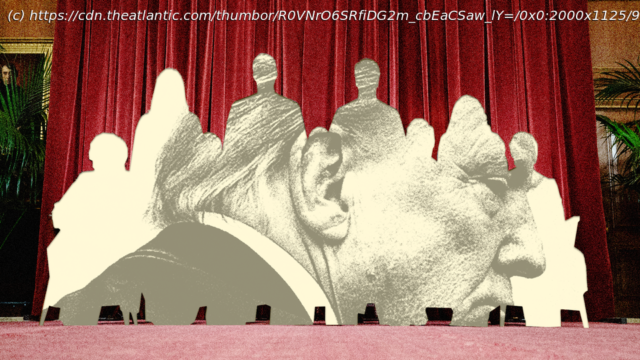And gives him permission for a despotic second term.
Near the top of their sweeping, lawless opinion in Trump v. United States, Donald Trump’s defenders on the Supreme Court repeat one of the most basic principles of American constitutional government: “The president is not above the law.” They then proceed to obliterate it.
Although the pro-Trump justices attempt to nest the breadth of their opinion in legalese, their finding that the president cannot be prosecuted for “official acts,” and that much of Trump’s efforts to seize power fall under that rubric, means that the justices have essentially legalized a losing president refusing to step down, as Trump tried to do after the 2020 election.
The Court’s opinion presents an absurd paradox that defeats the purpose of a constitutional democracy governed by the rule of law. It has little basis in the Constitution or in the words of the Founders. It is the outcome that most benefits the Court’s preferred presidential candidate, while allowing the justices to live with themselves for defacing beyond recognition the Constitution and the concept of democratic self-determination.
In her dissent, Justice Sonia Sotomayor puts it plainly. Regarding the question of “whether a former President enjoys immunity from federal criminal prosecution,” Sotomayor writes, “The majority thinks he should, and so it invents an atextual, ahistorical, and unjustifiable immunity that puts the President above the law.” That is the long and the short of it.
Referring to Trump’s scheme to manufacture voter-fraud prosecutions as a pretext for overturning his loss in the 2020 election, the Court writes that “because the President cannot be prosecuted for conduct within his exclusive constitutional authority, Trump is absolutely immune from prosecution for the alleged conduct involving his discussions with Justice Department officials.” This refers to discussions in which Trump, who was warned by his own advisers that his claims of voter fraud were bogus, told the Justice Department, “Just say that the election was corrupt + leave the rest to me and the R. Congressmen,” according to contemporary notes by a Justice Department official.
Throughout the opinion, Chief Justice John Roberts often sounds more like Trump’s lawyer than the impartial judge he presents himself as. Roberts writes that “with respect to the President’s exercise of his core constitutional powers, this immunity must be absolute.” If that applies, as the Court holds, to a sitting president manufacturing a scheme to avoid relinquishing power after losing an election, then there is no legal constraint on a president simply refusing to leave office and using his authority to find a pretext for doing so. We can debate the nuances of history, the Framers’ intentions, or the text of the Constitution. What the Founders of the United States did not intend to do, when they designed a constitutional system of checks and balances, was establish a government that would allow someone to declare themselves president for life if they felt like it.






